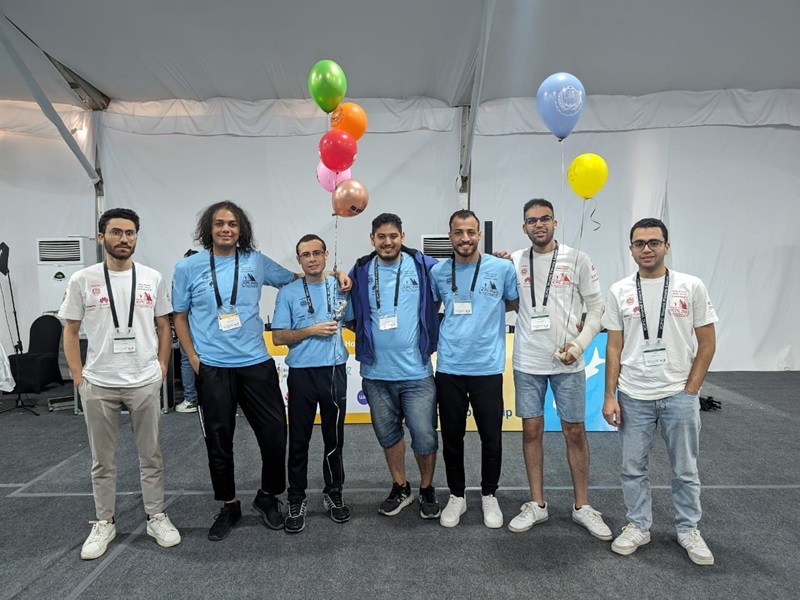Two teams from the Faculty of Computer and Information Sciences won the International Collegiate Programming Contest (ICPC) in its forty-sixth and forty-seventh editions.
Under the patronage of His Excellency President Abdel Fattah El-Sisi, President of the Arab Republic of Egypt, Egypt hosted for the first time the International Collegiate Programming Contest (ICPC) for the years 2021 and 2022 in its forty-sixth and forty-seventh editions in Luxor Governorate from April 14 to 18, 2024.
Dr. Amr Talaat, Minister of Communications and Information Technology, witnessed the activities of the international competition and the award ceremony for the winners of the championship, which was organized by the Arab Academy for Science, Technology and Maritime Transport.
The students of the Faculty of Computer and Information Sciences at Ain Shams University won first place in the Arab and African competitions, with the support and sponsorship of Prof. Mohamed Diaa Zain El-Abedeen, President of Ain Shams University and Prof. Najwa Badr, Dean of the Faculty and Prof. Hala Mushir, Undersecretary for Education and Student Affairs.
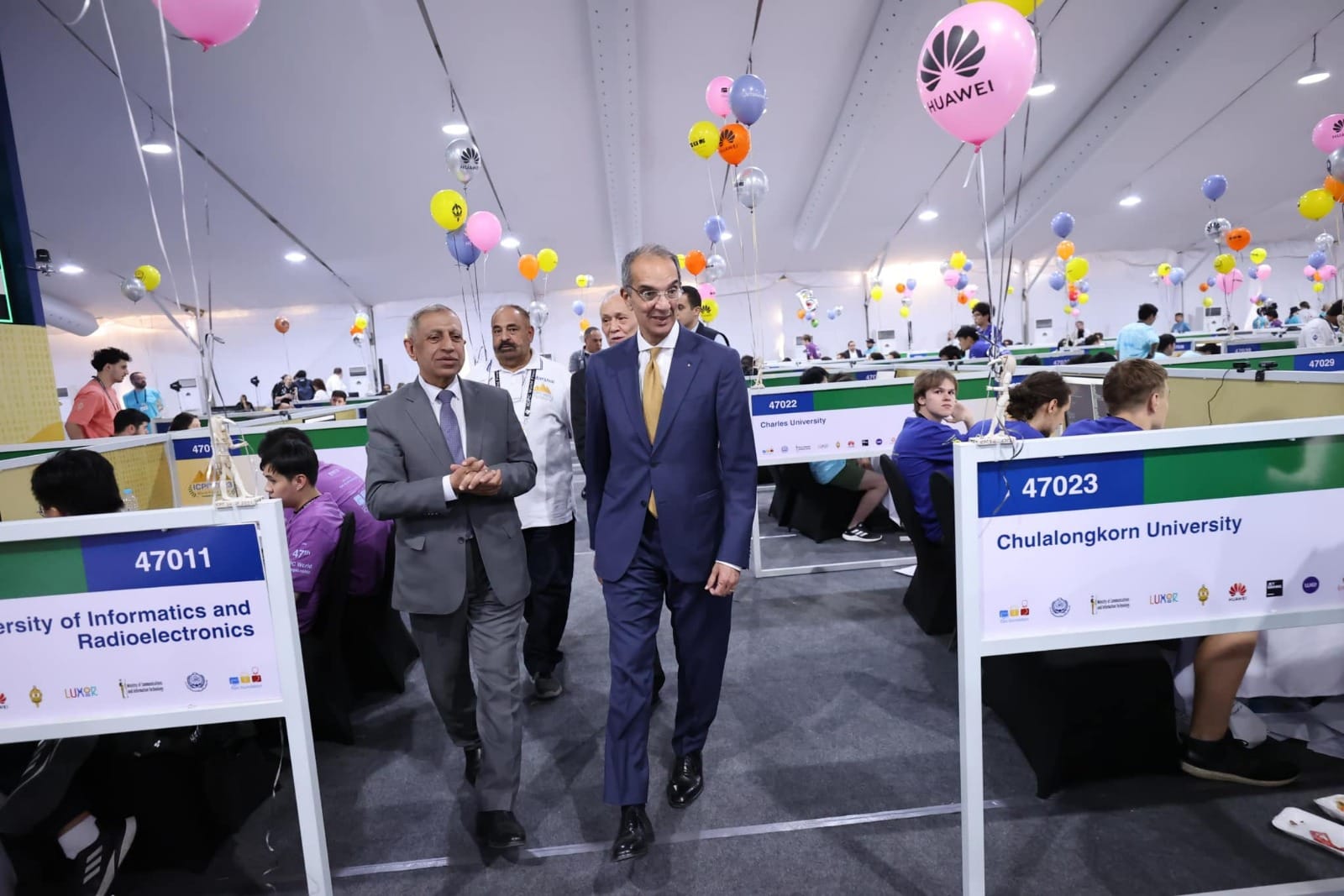 |
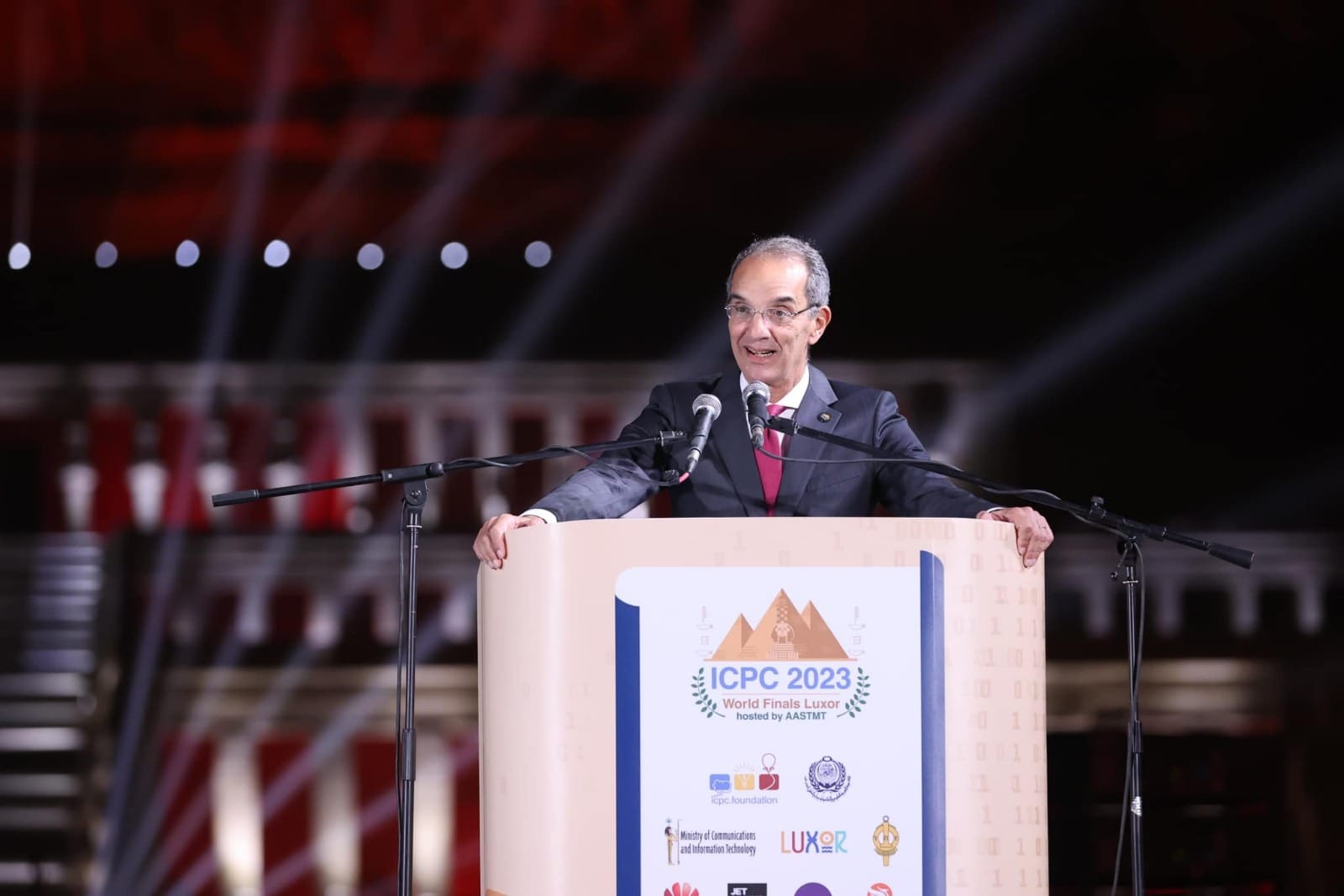 |
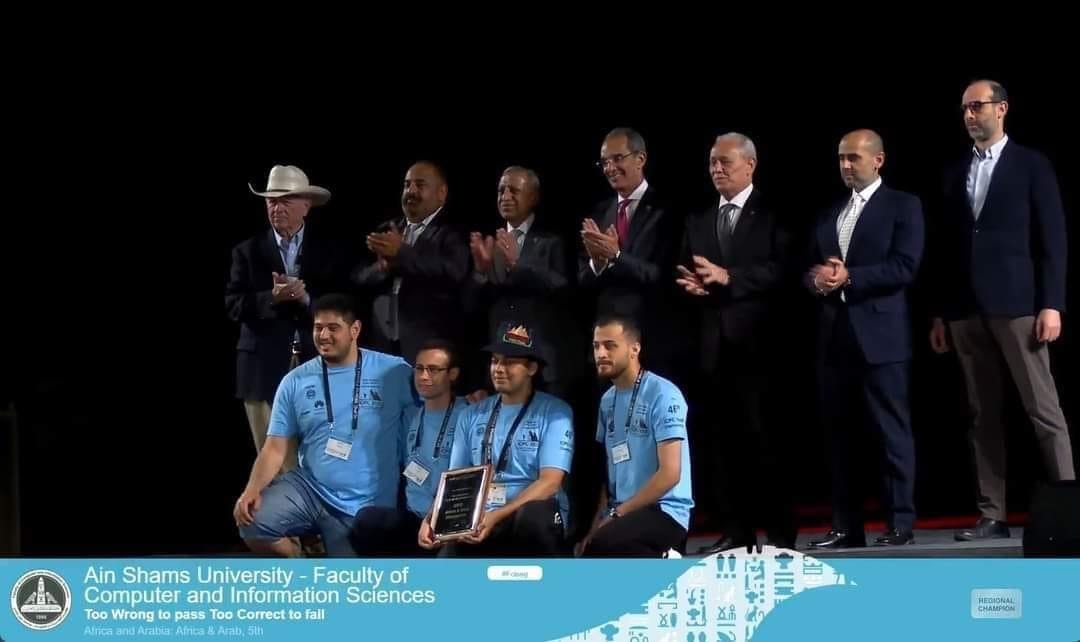 |
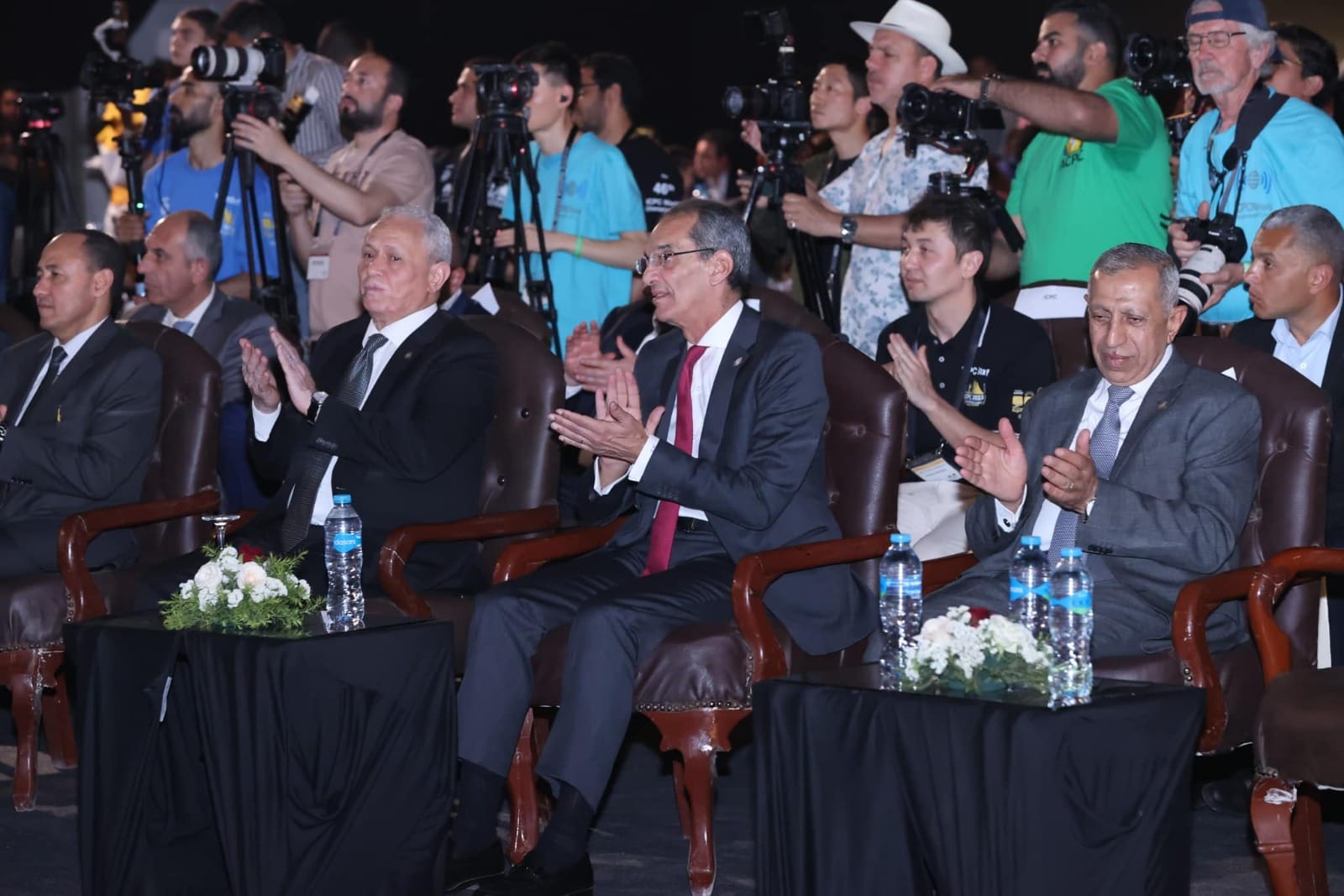 |
The university administration congratulated the student team that won first place in the Arab and African countries and 46th place globally. The student team includes: Islam Mohsen - Ishaq Morris - Mustafa Badawi.
The university administration also congratulated the team that won 121st place globally in the 47th edition. The team includes students: Abdul Rahman Ahmed - Ziad Khubayz - Abdul Rahman Etman.
It is worth noting that the competition goes through many stages, starting with the competitions that take place at the level of each faculty, then at the level of Egyptian universities, then at the Arab and African level, ending with the global competition at the level of all the universities in the world that qualify for the competition. The students of the Faculty of Computer and Information Sciences at Ain Shams University qualified through continuous training since their joining the faculty to solve various programming problems and hold hackathons and competitions among the faculty students to qualify them to participate in regional and international competitions.
Prof. Mohamed Diaa Zain El-Abedeen expressed his great pride and happiness at the level of students of the Faculty of Computer and Information Sciences, as two teams from the university won in a global competition in its 46th and 47th editions and achieved first places in the Arab and African countries, as well as advanced places internationally.
The closing ceremony was held in the Temple of Hatshepsut in the presence of Advisor Mustafa Elham, Governor of Luxor, and Professor William Boucher, President of the ICPC Foundation. 2,500 students from various universities around the world participated in the tournament, representing 300 teams from 111 countries who were chosen from 20,000 participating teams this year, representing 8 international regional regions.
The International Collegiate Programming Contest is one of the largest and oldest competitions in the field of software for university students in the world since 1977 and its main headquarters is in the state of Texas in the United States of America. The idea of the competition is based on developing students’ abilities to use systematic solution methods and computer algorithms to solve industrial problems by writing a program to solve Problems in the best way in the shortest possible time. Each team consists of 3 students and a coach. In this competition, the students work collectively to solve the largest number of problems in the shortest possible time using one computer for each team during the competition period, which lasts for 5 continuous hours. The ICPC International Collegiate Programming Contest for 2021 and 2022 was held this year in Luxor from April 14 to 18, 2024.


.svg)

